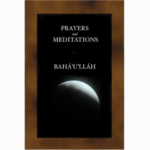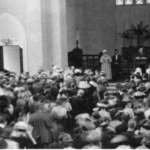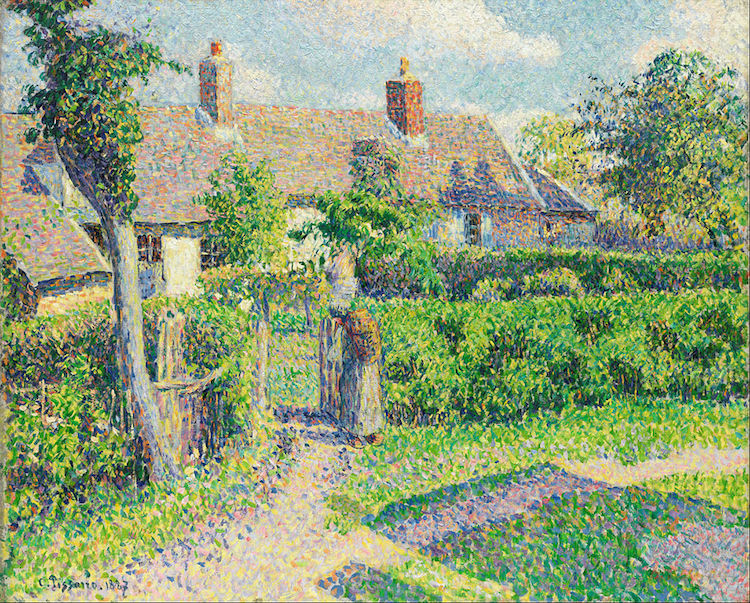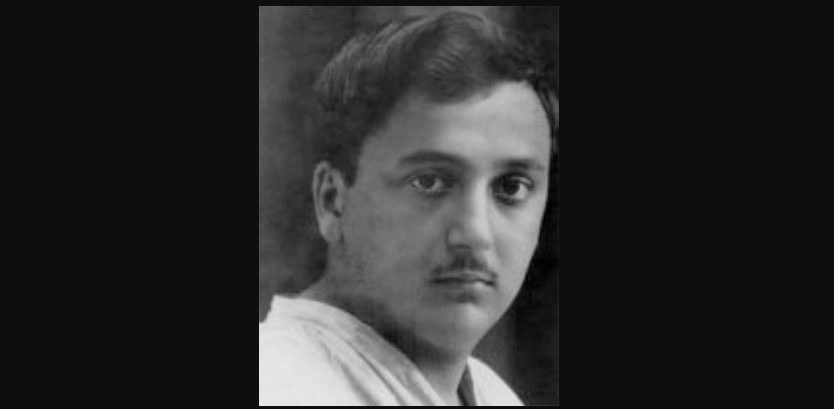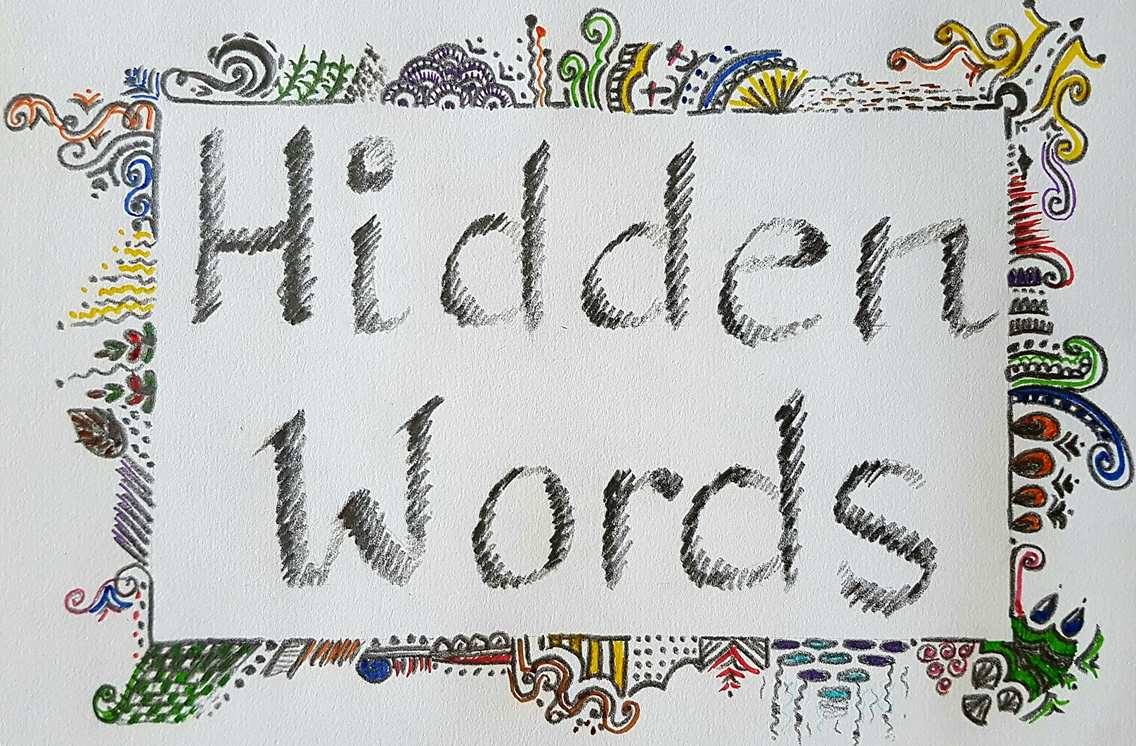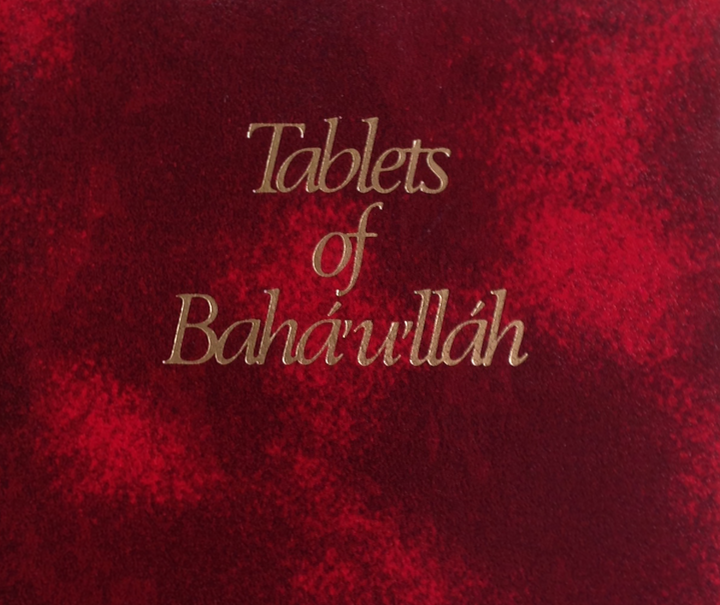
Tablets of Bahá’u’lláh

Tablets of Bahá’u’lláh, like Gleanings from the Writings of Baha’u’llah, is collection of the writings of Baha’u’llah translated into English in 1978. It improved the translation of some writings that had been originally translated early in the twentieth century, and made available others for the first time in English.
The Tablets of Baha’u’llah come from the later part of Bahá’u’lláh’s life. Shoghi Effendi described the writings of this period as characterized by:
… the enunciation of certain precepts and principles which lie at the very core of [Baha’u’llah’s] Faith, by the reaffirmation of truths He had previously proclaimed, by the elaboration and elucidation of some of the laws He had already laid down, by the revelation of further prophecies and warnings, and by the establishment of subsidiary ordinances designed to supplement the provisions of His Most Holy Book. These were recorded in unnumbered Tablets, which He continued to reveal until the last days of His earthly life, among which the “Ishráqát” (Splendors), the “Bishárát” (Glad Tidings), the “Ṭarázát” (Ornaments), the “Tajallíyát” (Effulgences), the “Kalimát-i-Firdawsíyyih” (Words of Paradise), the “Lawḥ-i-Aqdas” (Most Holy Tablet), the “Lawḥ-i-Dunyá” (Tablet of the World), the “Lawḥ-i-Maqsúd” (Tablet of Maqsúd), are the most noteworthy. These Tablets—mighty and final effusions of His indefatigable pen—must rank among the choicest fruits which His mind has yielded, and mark the consummation of His forty-year-long ministry.[1]
Shoghi Effendi then goes on to list some of the most significant principles that this period encapsulated: “the most vital” principle of the oneness of humanity; the principle of collective security; the upholding of justice; the importance of moderation; the tool of consultation; the call to associate freely with all human beings; the establishment of the Universal House of Justice; and the importance of the media, among them.
Among the writings of this period mentioned above are Bahá’u’lláh’s will and testament: the Kitab-i-Ahd, which is discussed in a previous article. It is one of the sources in which we find Baha’u’llah’s teaching of the oneness of humankind. We have also previously examined the Ornaments: a work which abolishes religious constraints on clothing – but fosters good character instead. We have also seen the Glad Tidings (Bisharat), with their abolition of holy war, their call for a world langauge and their fostering of friendship between people. Coming articles will hopefully explore more the writings from this period.
Among them are the Tablet of the World which, among other things, explores the theme of justice; and the Tablet of Wisdom in which Bahá’u’lláh explores the work of philosophers. The latter is one source of Bahá’u’lláh’s principle of the harmony of science and religion and appears to be the only written work of a prophet-founder of a world religion which specifically engages with the Greek tradition of philosophy. This, in itself, is unique. This is a brief extract from the Tablet of Wisdom:
After Socrates came the divine Plato who was a pupil of the former and occupied the chair of philosophy as his successor. He acknowledged his belief in God and in His signs which pervade all that hath been and shall be. Then came Aristotle, the well-known man of knowledge. He it is who discovered the power of gaseous matter. These men who stand out as leaders of the people and are preeminent among them, one and all acknowledged their belief in the immortal Being Who holdeth in His grasp the reins of all sciences.[2] …
A true philosopher would never deny God nor His evidences, rather would he acknowledge His glory and overpowering majesty which overshadow all created things. Verily We love those men of knowledge who have brought to light such things as promote the best interests of humanity, and We aided them through the potency of Our behest, for well are We able to achieve Our purpose.
Beware, O My loved ones, lest ye despise the merits of My learned servants whom God hath graciously chosen to be the exponents of His Name “the Fashioner” amidst mankind. Exert your utmost endeavor that ye may develop such crafts and undertakings that everyone, whether young or old, may benefit therefrom.[3]
Image: Cover of 1988 reprint of 1978 English edition of Tablets of Bahá’u’lláh, U.S. Publishing Trust.
(This article is the 76th in a series of what I hope will be 200 articles in 200 days for the 200th anniversary of the birth of Bahá’u’lláh. The anniversary is being celebrated around the world on 21 and 22 October 2017, The articles are simply my personal reflections on Bahá’u’lláh’s life and work. Any errors or inadequacies in these articles are solely my responsibility.)


